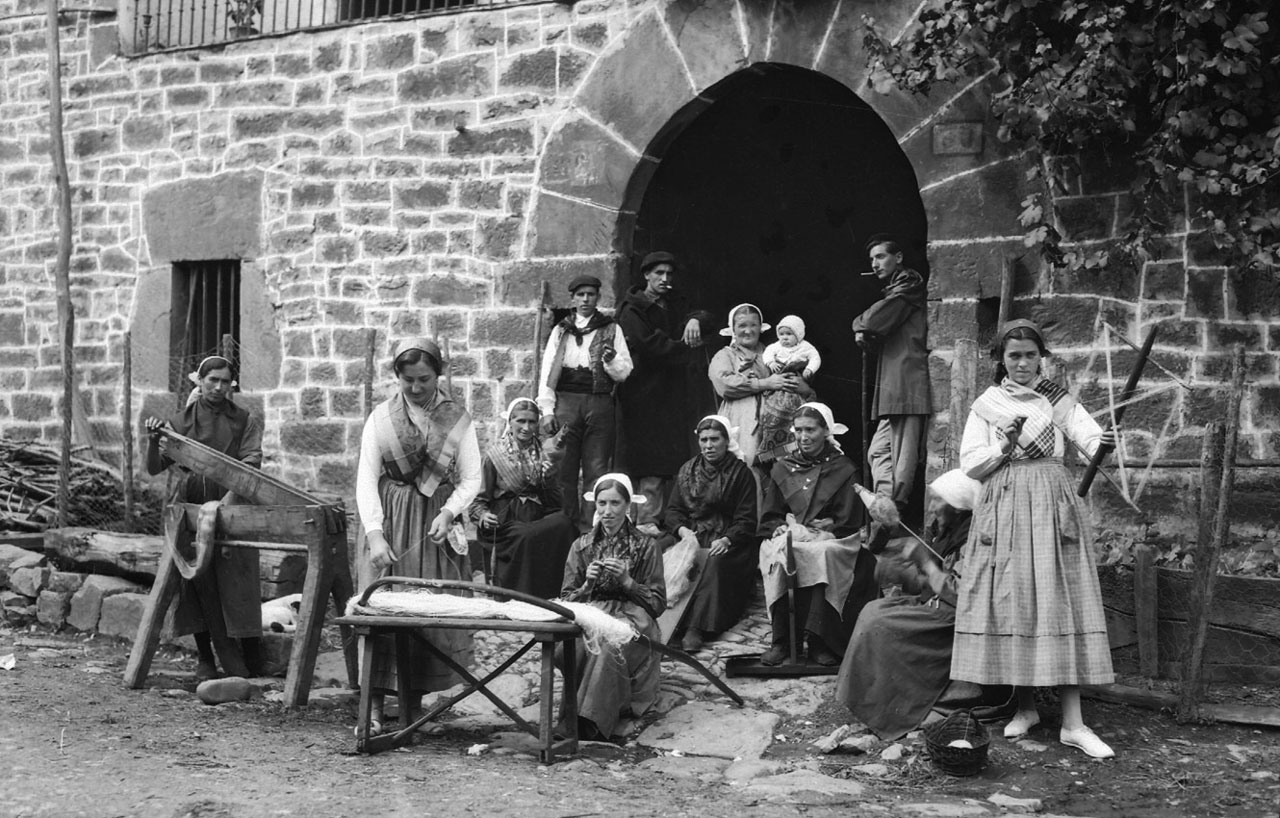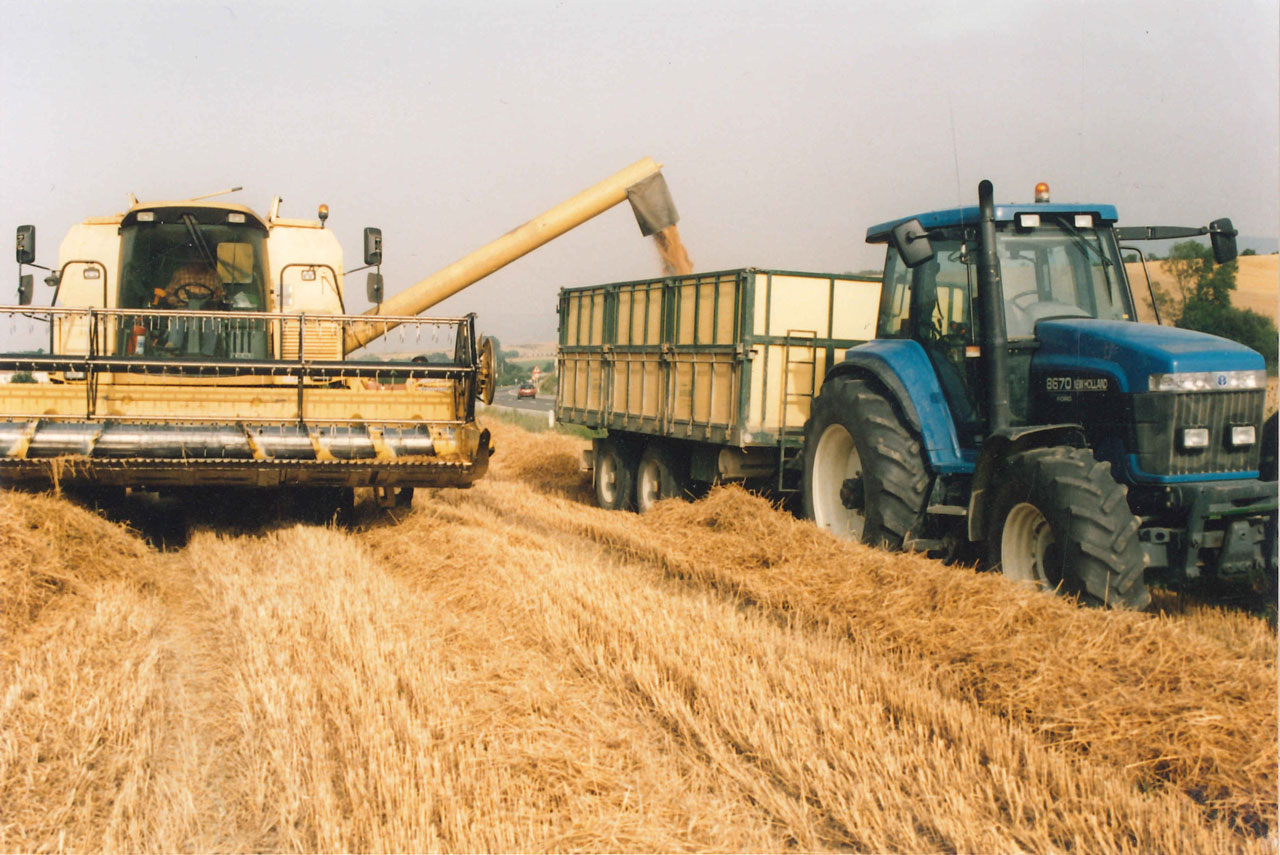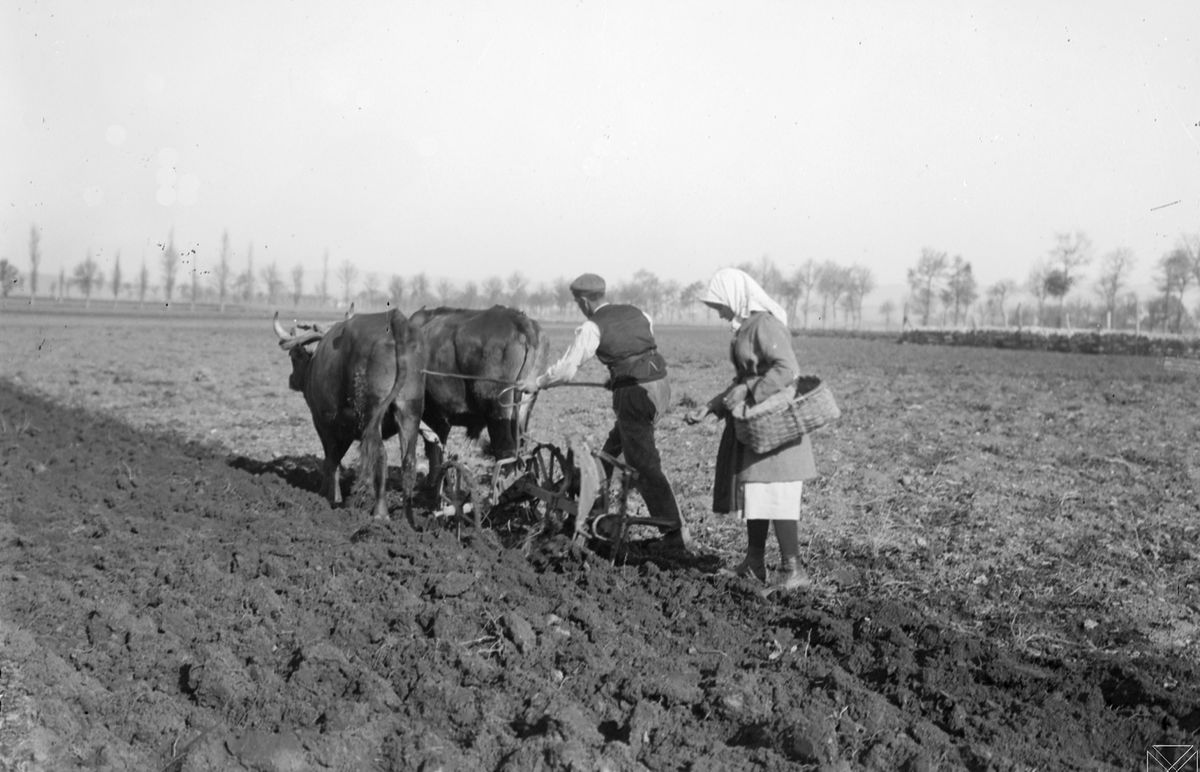Diferencia entre revisiones de «Agricultura en vasconia/en»
De Atlas Etnográfico de Vasconia
m (Texto reemplazado: «|Knowledgeable data]]</div>» por «|Authorship and knowledgeable data]]</div>») |
|||
| (No se muestran 72 ediciones intermedias de 2 usuarios) | |||
| Línea 1: | Línea 1: | ||
| + | _LABAYRU_LANDING_ | ||
<languages></languages> | <languages></languages> | ||
| − | < | + | |
| + | {{DISPLAYTITLE: Agriculture in the Basque Country}}{{#bookTitle:Agriculture in the Basque Country | Agricultura_en_vasconia/en}} | ||
| + | |||
| + | |||
| + | ==[landing]== | ||
| + | |||
| + | |||
| + | ===[agricultura|Agriculture in the Basque Country|/atlas/agricultura.png|Traditional agriculture and the great changes that occurred over the last decades of the 20th century, leading to high levels of agricultural mechanisation.]=== | ||
| + | ====[ Agricultura_en_vasconia | Agriculture in the Basque Country]==== | ||
| + | |||
| + | |||
| + | ====[/atlas/agricultura/Andreak-asto-gainean-astotzarekin.jpg|Milk-women. Source: Ecclesiastical Historical Archive of Bizkaia: Sanctuary of Urkiola Collection.|Our rural folk and our ancestors knew and practised agriculture on a more human scale and from a more holistic approach; it is not only the yield that matters, but also the complex network of physical factors and human beings involved in an activity that is actually based on cultivating the life that feeds us.||]==== | ||
| + | |||
| + | ====[/atlas/agricultura/Acarreando-hierba-verde-Carranza-1977.jpg|Grass hauling. Carranza (B), 1977. Source: Miguel Sabino Díaz, Etniker Euskalerria Groups.|That [traditional agricultural] knowledge came from the deep-rooted bond established with the land. Self-sufficiency entailed deep respect for the land, as their very livelihood depended on it.||]==== | ||
| + | |||
| + | ====[/atlas/agricultura/Vinedo-de-Obanos-2011.jpg|Vineyard in Obanos (N), 2011. Source: M.ª Amor Beguiristain, Etniker Euskalerria Groups.|Tente nublo, tente en ti,<br />no te caigas sobre mí,<br />guarda el pan, guarda el vino,<br />guarda los campos que están floridos.<br />''Spell against hail''||]==== | ||
| + | |||
| + | ====[/atlas/agricultura/Siega-de-trigo-Gesaltza-1950.jpg|Wheat harvest. Gesaltza (G), c. 1950. Source: Municipal Archive of Vitoria-Gasteiz: Enrique Guinea Collection.|Satsitu ta jorratu ta garia hartu. <br />''Spreading manure and weeding and harvesting wheat.''||]==== | ||
| + | |||
| + | ====[/atlas/agricultura/Desgranando-semilla-Zerain-1961.jpg|Seed threshing. Zerain (G), 1961. Source: Karmele Goñi, Etniker Euskalerria Groups.|Selecting seeds has always been a fundamental activity. The best seeds were chosen from each harvest, and they were then stored and used for the next sowing season.||]==== | ||
| + | |||
| + | ====[/atlas/agricultura/Laietan-Zeanurin-1920.jpg|Spading. Zeanuri (B), 1920. Source: Labayru Fundazioa Photograhic Archive: Felipe Manterola Collection.|Spades, ploughs, rakes, sickles, scythes and threshers were the essential tools for agricultural work.||]==== | ||
| + | |||
| + | ====[/atlas/agricultura/Acarreo-de-los-haces-de-trigo-1940.jpg|Haulage of wheat sheaves. Álava, c. 1940. Source: Municipal Archive of Vitoria-Gasteiz: Enrique Guinea Collection.|Both animal and human power had a decisive impact on the way of working and on the crops until the introduction of modern machinery.||]==== | ||
| + | |||
| + | ====[/atlas/agricultura/Recoleccion-de-oliva-a-ordeno-Moreda-2015.jpg|Milking of olive trees. Moreda (A), 2015. Source: José Ángel Chasco, Etniker Euskalerria Groups.|Uzta garaian lokartzen, miserian iratzartzen. <br />''Anyone who sleeps at harvest time wakes up destitute.''||]==== | ||
| + | |||
| + | ====[/atlas/agricultura/Utillaje-para-trabajar-el-lino-Zeanuri-1931.jpg|Implements for linen making. Zeanuri (B), 1931. Source: Labayru Fundazioa Photograhic Archive: Felipe Manterola Collection.|Linoaren atsekabeak, amaigabeak. <br />''Producing fine linen is hard work.''||]==== | ||
| + | |||
| + | ====[/atlas/agricultura/Maizal.-Carranza--2016.jpg|Maize field. Carranza (B), 2016. Source: Luis Manuel Peña, Etniker Euskalerria Groups.|San Jurgi, artoak ereiteko goizegi; San Markos, artoak ereinda balegoz. <br />''St George’s Day is too early to sow maize and St Mark’s Day is too late.''||]==== | ||
| + | |||
| + | ====[/atlas/agricultura/Trilladora-y-costales-de-trigo-Navarra-1960.jpg|Wheat being threshed and sacked. Navarre, c. 1960. Source: Archive of the Museum of Navarre: Nicolás Ardanaz Collection.|Maiatz luzea, gosea; garagarrilak ekarriko du asea. <br />''A very wet May, much straw and little grain.''||]==== | ||
| + | |||
| + | ====[/atlas/agricultura/Vecinos-trabajando-en-las-eras-Alegria-Dulantzi-1940.jpg|Neighbours on the threshing plots. Alegría-Dulantzi (A), c. 1940. Source: Municipal Archive of Vitoria-Gasteiz: Enrique Guinea Collection.|Elur asko den urtean, garia; eta erle asko dugunean, eztia. <br />''A year of snow, a year of plenty.''||]==== | ||
| + | |||
| + | ====[/atlas/agricultura/Sembrando-patata-a-azada-Abadino-2009.jpg|Sowing potato with a hoe. Abadiño (B), 2009. Source: Rosa M.ª Ardanza, Etniker Euskalerria Groups.|Flax fields and market gardens were the areas of the farm that required the greatest care, the pride of the farmer’s property and a cornerstone of the family’s wealth.||]==== | ||
| + | |||
| + | ====[/atlas/agricultura/Molino-de-Carranza-1977.jpg|Mill in Carranza (B), 1977. Source: Miguel Sabino Díaz, Etniker Euskalerria Groups.|Until the 1950s, flour mills were an essential aspect of the livestock-farming economy of our villages.||]==== | ||
| + | |||
| + | ====[/atlas/agricultura/Descargando-el-grano-en-el-remolque-Argandona-2003.jpg|Unloading grain into the trailer. Argandoña (A), 2003. Source: Juan José Galdos, Etniker Euskalerria Groups.|Ezkur urte, laborte urte. <br />''Acorns a plenty, a year of prosperity.''||]==== | ||
| + | |||
| + | |||
| + | ==[related]== | ||
| + | |||
| + | <div class="mw-translate-fuzzy"> | ||
| + | ===Outstanding contents=== | ||
| + | ====[/images/thumb/e/e9/8.39_Sembrando._Alava_1917.jpg/1200px-8.39_Sembrando._Alava_1917.jpg|Agriculture in the Basque Country|Crop distribution and rotation. Farming year|[[DISTRIBUCION_Y_ROTACION_DE_CULTIVOS._CALENDARIO_AGRICOLA/en]]]==== | ||
| + | ====[/images/thumb/4/47/8.55_Maquinando_con_arado_braban._Hondarribia_(G)_1977.jpg/1200px-8.55_Maquinando_con_arado_braban._Hondarribia_(G)_1977.jpg|Agriculture in the Basque Country|Preparation of the cultivated land|[[PREPARACION_DE_LA_TIERRA_DE_CULTIVO/en]]]==== | ||
| + | ====[/images/thumb/2/21/8.203_Perales_en_flor._Uharte_(N)_1975.jpg/1200px-8.203_Perales_en_flor._Uharte_(N)_1975.jpg|Agriculture in the Basque Country|Culture of fruit trees|[[CULTIVO_DE_ARBOLES_FRUTALES/en]]]==== | ||
| + | ====[/images/thumb/c/ce/8.249_Vendimiando._Moreda_(A)_2015.jpg/1200px-8.249_Vendimiando._Moreda_(A)_2015.jpg|Agriculture in the Basque Country|Production of oil, wine, txakolin and cider|PRODUCCION_DE_ACEITE_VINO_TXAKOLI_Y_SIDRA/en]==== | ||
| + | </div> | ||
Revisión actual del 16:02 11 mar 2020

Agriculture in the Basque Country
Traditional agriculture and the great changes that occurred over the last decades of the 20th century, leading to high levels of agricultural mechanisation.
Implements for linen making. Zeanuri (B), 1931. Source: Labayru Fundazioa Photograhic Archive: Felipe Manterola Collection.




_1977.jpg/1200px-8.55_Maquinando_con_arado_braban._Hondarribia_(G)_1977.jpg)
_1975.jpg/1200px-8.203_Perales_en_flor._Uharte_(N)_1975.jpg)
_2015.jpg/1200px-8.249_Vendimiando._Moreda_(A)_2015.jpg)
